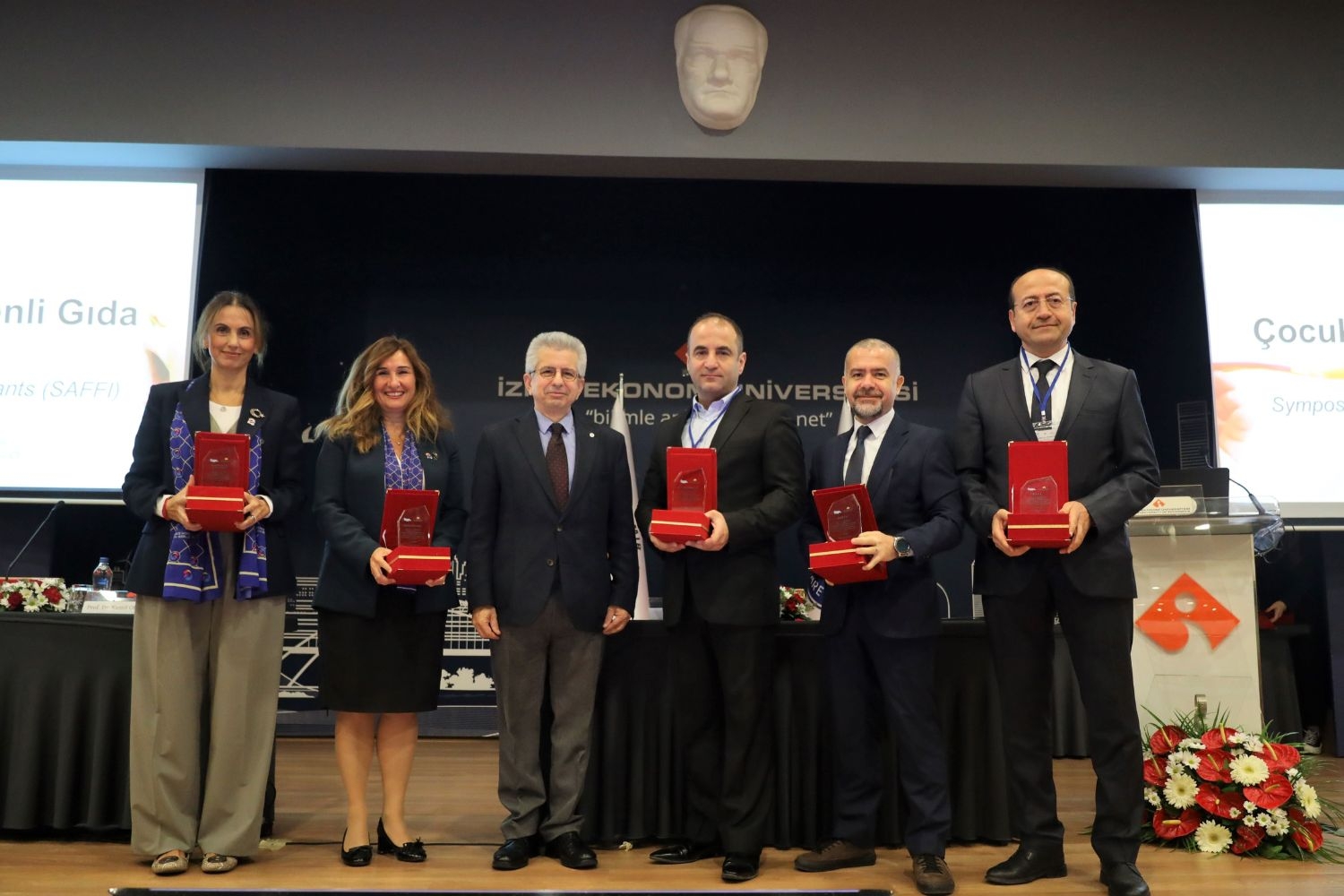
...

...
VOCATIONAL SCHOOL OF HEALTH SERVICES
Department of Child Development| Course Name |
Business Administration I
|
|
Code
|
Semester
|
Theory
(hour/week) |
Application/Lab
(hour/week) |
Local Credits
|
ECTS
|
|
TS 215
|
Fall/Spring
|
2
|
0
|
2
|
3
|
| Prerequisites |
None
|
|||||
| Course Language |
Turkish
|
|||||
| Course Type |
Elective
|
|||||
| Course Level |
Short Cycle
|
|||||
| Mode of Delivery | - | |||||
| Teaching Methods and Techniques of the Course | DiscussionGroup WorkProblem SolvingCase StudyQ&ALecture / Presentation | |||||
| National Occupation Classification | - | |||||
| Course Coordinator | ||||||
| Course Lecturer(s) | ||||||
| Assistant(s) | - | |||||
| Course Objectives | The primary goal of this course is to provide students with a broad overview of the business field and establish a fundamental grasp of business concepts. Furthermore, it seeks to enhance students’ comprehension of the business environment by educating them on essential business principles, the functioning of businesses and the fundamental dynamics of the business realm. Ultimately, this course endeavors to equip students with the foundational knowledge and skills necessary to navigate their career paths. |
| Learning Outcomes |
The students who succeeded in this course;
|
| Course Description | Throughout this introductory course, students will receive theoretical and practical instruction that primarily focuses on the core objectives of business environment, its functions, the internal and external business environment, industry analysis, and various business models. Additionally, the course will explore topics such as business ethics, sustainability, and corporate social responsibility through real-world examples. The foundational functions of businesses will be assessed individually, laying the groundwork for business concepts and management principles. |
| Related Sustainable Development Goals |
|
|
Core Courses | |
| Major Area Courses | ||
| Supportive Courses |
X
|
|
| Media and Management Skills Courses | ||
| Transferable Skill Courses |
| Week | Subjects | Related Preparation |
| 1 | Introduction; outline of the course flow; a broad overview of the core business concepts. | |
| 2 | Basic concepts of business; businesses by geographic scope | Getman, L., McDaniel, Carl, Shah, A., Reece, M., Koffel, L., Talsma, B., Hyatt, JC., Introduction to Business, Openstax, 2018, ISBN: 978-1-947172-55-5 |
| 3 | Business environment: Internal and external environment of the business | Getman, L., McDaniel, Carl, Shah, A., Reece, M., Koffel, L., Talsma, B., Hyatt, JC., Introduction to Business, Openstax, 2018, ISBN: 978-1-947172-55-5 |
| 4 | SWOT analysis; Porter’s five forces: Industrial analysis | Getman, L., McDaniel, Carl, Shah, A., Reece, M., Koffel, L., Talsma, B., Hyatt, JC., Introduction to Business, Openstax, 2018, ISBN: 978-1-947172-55-5 |
| 5 | Business ethics; corporate social responsibility; responsibilities to stakeholders | Getman, L., McDaniel, Carl, Shah, A., Reece, M., Koffel, L., Talsma, B., Hyatt, JC., Introduction to Business, Openstax, 2018, ISBN: 978-1-947172-55-5 |
| 6 | Classification of businesses: Nature of the product produced; different legal structures of businesses | Getman, L., McDaniel, Carl, Shah, A., Reece, M., Koffel, L., Talsma, B., Hyatt, JC., Introduction to Business, Openstax, 2018, ISBN: 978-1-947172-55-5 |
| 7 | Entrepreneurship: Starting a new business | Getman, L., McDaniel, Carl, Shah, A., Reece, M., Koffel, L., Talsma, B., Hyatt, JC., Introduction to Business, Openstax, 2018, ISBN: 978-1-947172-55-5 |
| 8 | Midterm Exam | |
| 9 | Management function: Planning, organizing, leading, controlling | Getman, L., McDaniel, Carl, Shah, A., Reece, M., Koffel, L., Talsma, B., Hyatt, JC., Introduction to Business, Openstax, 2018, ISBN: 978-1-947172-55-5 |
| 10 | Human resources function: planning, recruitment process, orientation, training, performance evaluation, salary management | Getman, L., McDaniel, Carl, Shah, A., Reece, M., Koffel, L., Talsma, B., Hyatt, JC., Introduction to Business, Openstax, 2018, ISBN: 978-1-947172-55-5 |
| 11 | Marketing function: Product, price, place, promotion | Getman, L., McDaniel, Carl, Shah, A., Reece, M., Koffel, L., Talsma, B., Hyatt, JC., Introduction to Business, Openstax, 2018, ISBN: 978-1-947172-55-5 |
| 12 | Research and Development function | Getman, L., McDaniel, Carl, Shah, A., Reece, M., Koffel, L., Talsma, B., Hyatt, JC., Introduction to Business, Openstax, 2018, ISBN: 978-1-947172-55-5 |
| 13 | Production function: production system; production management; new trends in production process | Getman, L., McDaniel, Carl, Shah, A., Reece, M., Koffel, L., Talsma, B., Hyatt, JC., Introduction to Business, Openstax, 2018, ISBN: 978-1-947172-55-5 |
| 14 | Accounting and finance: basic accounting concepts; basic charts; uniform system of accounts; short and long-term investment decisions | Getman, L., McDaniel, Carl, Shah, A., Reece, M., Koffel, L., Talsma, B., Hyatt, JC., Introduction to Business, Openstax, 2018, ISBN: 978-1-947172-55-5 |
| 15 | Semester Review | The textbooks referenced below and course slides |
| 16 | Final |
| Course Notes/Textbooks | Getman, L., McDaniel, Carl, Shah, A., Reece, M., Koffel, L., Talsma, B., Hyatt, JC., Introduction to Business, Openstax, 2018, ISBN: 978-1-947172-55-5 |
| Suggested Readings/Materials |
|
| Semester Activities | Number | Weigthing |
| Participation |
1
|
10
|
| Laboratory / Application | ||
| Field Work | ||
| Quizzes / Studio Critiques |
1
|
20
|
| Portfolio | ||
| Homework / Assignments | ||
| Presentation / Jury | ||
| Project | ||
| Seminar / Workshop | ||
| Oral Exams | ||
| Midterm |
1
|
30
|
| Final Exam |
1
|
40
|
| Total |
| Weighting of Semester Activities on the Final Grade |
3
|
60
|
| Weighting of End-of-Semester Activities on the Final Grade |
1
|
40
|
| Total |
| Semester Activities | Number | Duration (Hours) | Workload |
|---|---|---|---|
| Theoretical Course Hours (Including exam week: 16 x total hours) |
16
|
2
|
32
|
| Laboratory / Application Hours (Including exam week: '.16.' x total hours) |
16
|
0
|
|
| Study Hours Out of Class |
10
|
1
|
10
|
| Field Work |
0
|
||
| Quizzes / Studio Critiques |
1
|
10
|
10
|
| Portfolio |
0
|
||
| Homework / Assignments |
0
|
||
| Presentation / Jury |
0
|
||
| Project |
0
|
||
| Seminar / Workshop |
0
|
||
| Oral Exam |
0
|
||
| Midterms |
1
|
18
|
18
|
| Final Exam |
1
|
20
|
20
|
| Total |
90
|
|
#
|
Program Competencies/Outcomes |
* Contribution Level
|
|||||
|
1
|
2
|
3
|
4
|
5
|
|||
| 1 |
To have the required contemporary theoretical and practical knowledge in his/her field |
-
|
-
|
-
|
-
|
-
|
|
| 2 |
To use the material and technology related to his/her field, and make their maintenance, use the information and communication technologies at basic level |
-
|
-
|
-
|
-
|
-
|
|
| 3 |
To have the competency to recognize the problems in his/her field, analyze them, develop evidence-based solutions and have the ability to share their suggestions with others |
-
|
-
|
-
|
-
|
-
|
|
| 4 |
To be aware of legal responsibilities, conduct basic studies in her/his field independently |
-
|
-
|
-
|
-
|
-
|
|
| 5 |
To communicate with patients, relatives and colleagues properly, comprehensively, honestly and explicitly, transfer his/her thoughts and knowledge through written and oral communication |
X
|
-
|
-
|
-
|
-
|
|
| 6 |
To take responsibility as an active team member during the practices in his/her field |
-
|
-
|
-
|
-
|
-
|
|
| 7 |
To commentate and evaluate the scientific information with a critical approach by the help of knowledge gained in his/her field |
-
|
-
|
-
|
-
|
-
|
|
| 8 |
To comprehend the importance of lifelong learning, to determine and meet her/his learning needs, to develop herself/himself by monitoring the development in science and technology |
-
|
-
|
X
|
-
|
-
|
|
| 9 |
To act by considering the universal ethical values, social and cultural characteristics |
-
|
X
|
-
|
-
|
-
|
|
| 10 |
To know the concepts of occupational safety, patient safety, environmental protection and quality, and fulfill the requirements |
X
|
-
|
-
|
-
|
-
|
|
| 11 |
To be able to follow information in his field and communicate with colleagues in English at least a level of European Language Portfolio A2 General Level |
-
|
-
|
-
|
-
|
-
|
|
| 12 |
To have the skills of improving the development and learning of children with special needs |
-
|
-
|
-
|
-
|
-
|
|
| 13 |
To plan and carry out activities for development of people under their responsibility |
-
|
-
|
-
|
-
|
-
|
|
*1 Lowest, 2 Low, 3 Average, 4 High, 5 Highest

...

...

As Izmir University of Economics transforms into a world-class university, it also raises successful young people with global competence.
More..Izmir University of Economics produces qualified knowledge and competent technologies.
More..Izmir University of Economics sees producing social benefit as its reason for existence.
More..